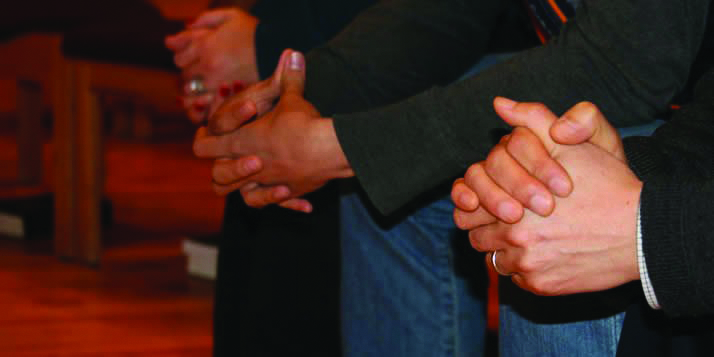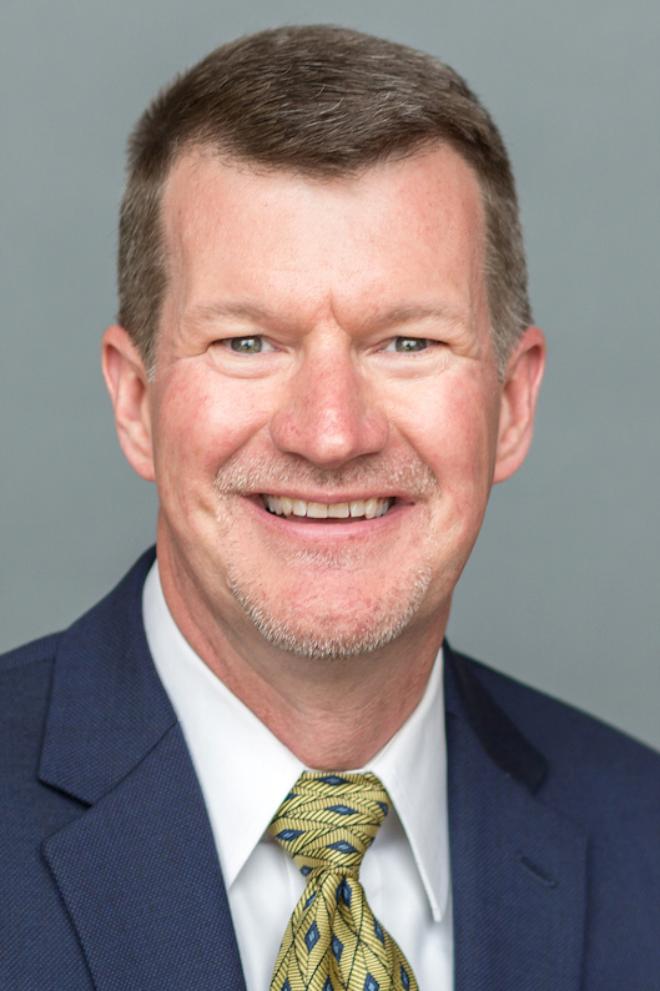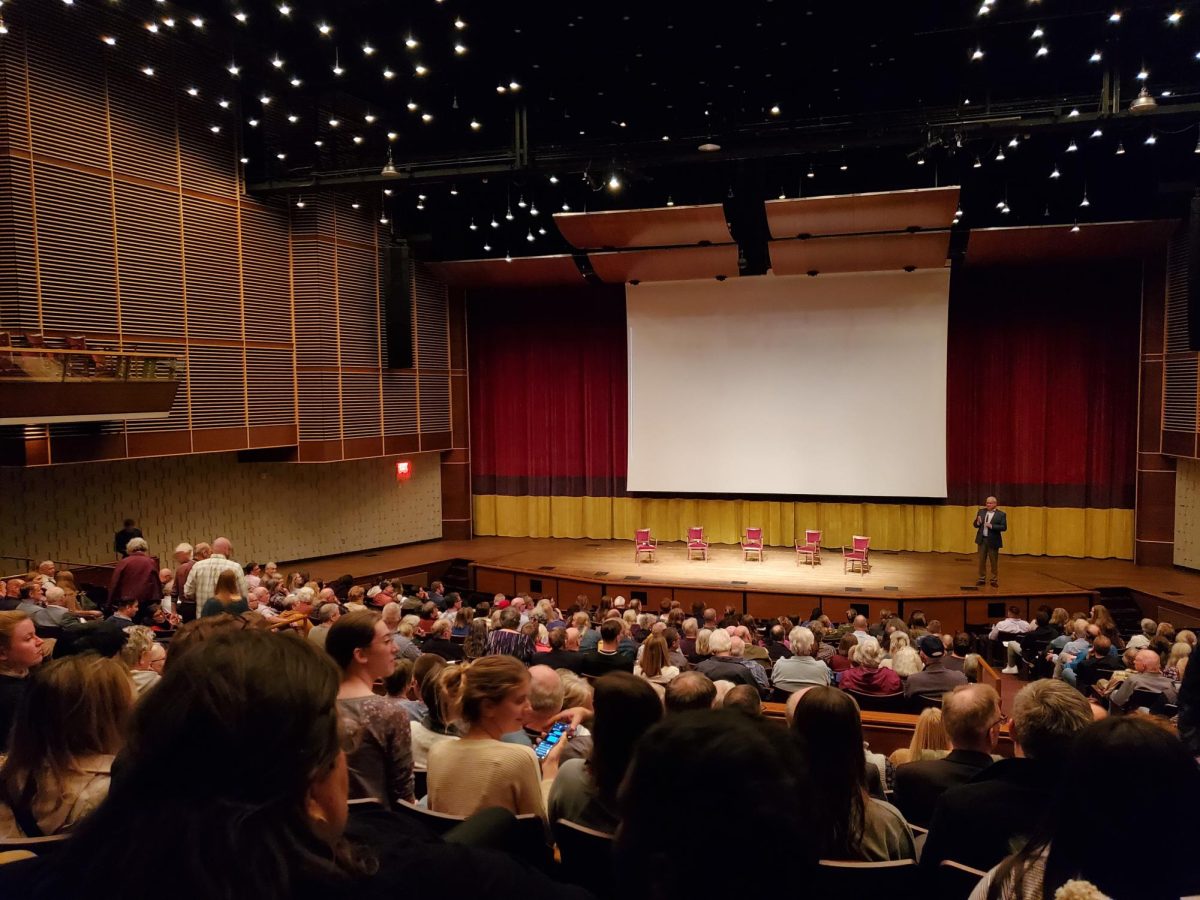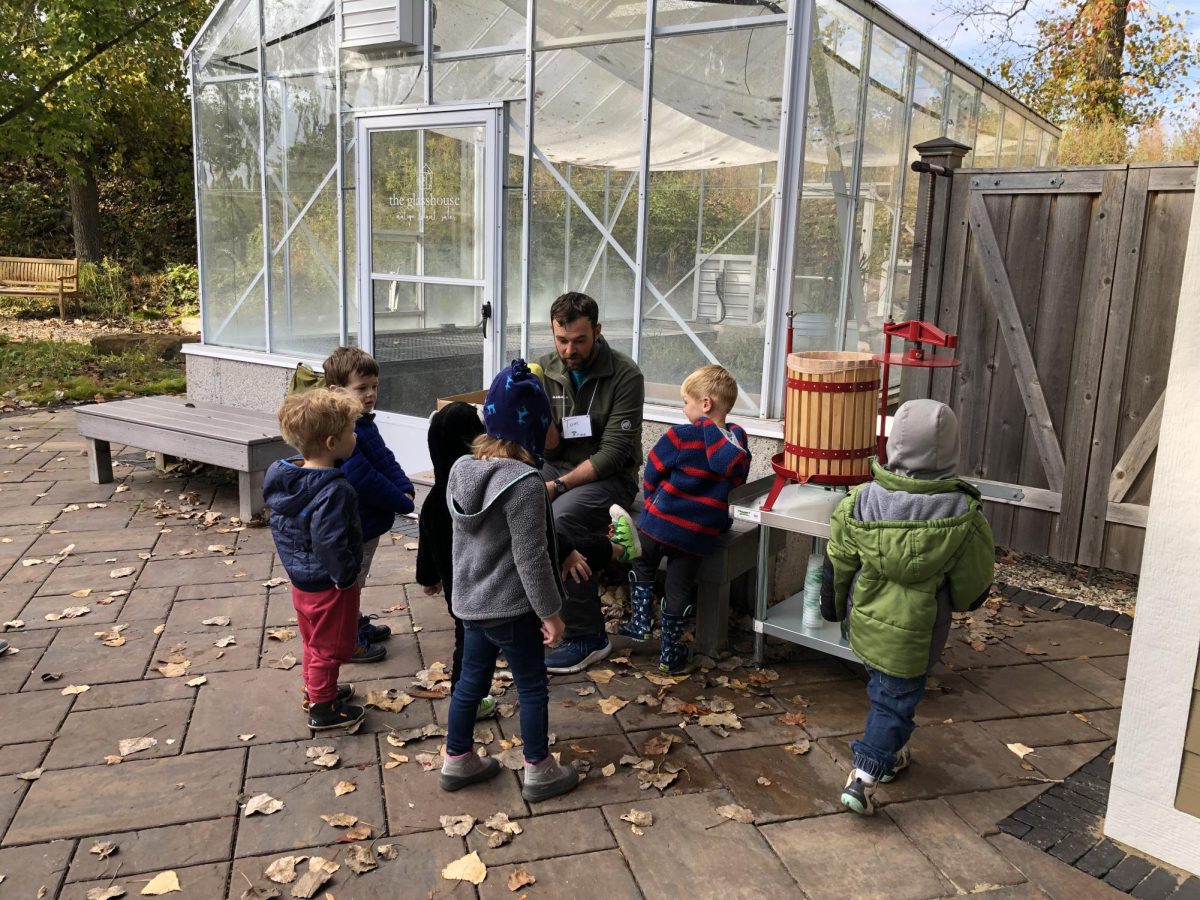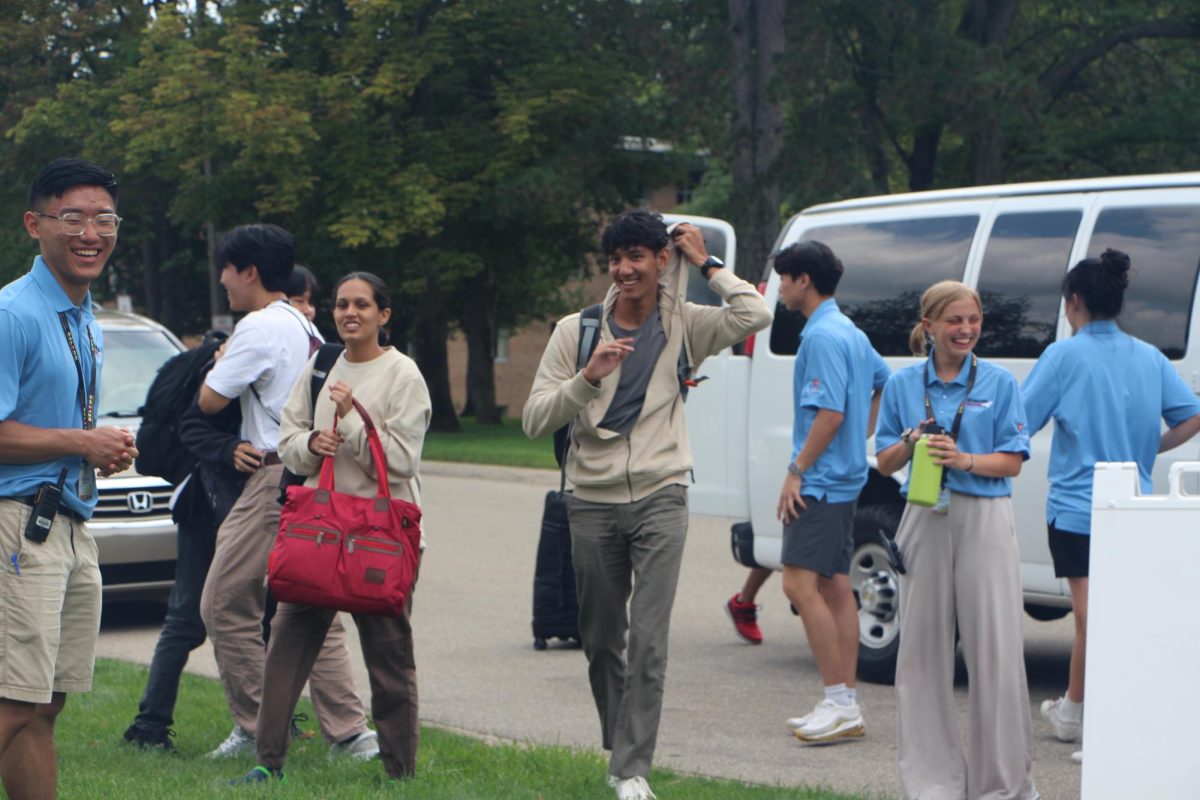“We have never seen anything like this!” The crowd exclaimed when the paralytic rose from his mat, took it up and walked. They must have been paralyzed themselves after the scene they had just witnessed. The former paralytic standing before them hadn’t even come through the door. Four men had seen his need, hauled him on a mat and, seeing that Jesus’ house was too crowded around to enter in a conventional manner, carved a hole on the roof above Jesus’ head to lower the paralytic inside.
Jared Votaw, resident director of Boer-Bennink and leader of Calvin’s LOFT Prayer Team, closed his Bible after sharing this passage from Mark 2, and we all stared at him, gathered as we were for our first meeting of the year.
“You’re all probably wondering what this has to do remotely with prayer,” he said. “But as prayer servants and intercessors, we function like those four men who carried the paralytic to Jesus. They probably walked a lot of miles to get him there, the mat plus the man’s deadweight must have been too heavy for them after a while and even when they reached Jesus’s place they had to take the hard way up to carry the man inside.”
“I don’t know if you all know what you signed up for,” he continued. “But as intercessors, we carry people to Jesus like those four men did.”
Thinking about it, it’s backbreaking work, what the four men did. Having someone else’s full burdens added to their shoulders, in addition to their troubles. Yet they’re written about as men who did the improbable to bring another’s burdens to Christ.
I never thought prayer would require anyone to break into a severe sweat. It’s easy to throw prayer requests into the air like snowflakes and hope that God will catch one or two of them. It’s plausible to think that saying “Amen” is equal to drawing down a curtain on God’s panorama of my life, establishing a comfortable barrier so that I can continue my way and God can go on with his business until I need him again.
As the reflection continued, I looked around at the students who had committed their time and energy to pray for complete strangers on campus. For the past three years after LOFT, students have carried the bulk of their prayer requests to a corner of the chapel where someone waited to pray for them. Like shifting a heavy sack off the students’ shoulders, the prayer servants would scoot in under the deadweight of the load and share it in prayer. And I wonder, as they’re being prayed over, do the students ever think about who is praying for them and why?
The LOFT Prayer Team began as a nebulous group of students who, like the four men seeing the need of the paralytic, “saw the need for prayer around campus and saw a lot of students struggle with different things, and many possibilities for God to work on campus,” says prayer servant Ana VanLonkhuyzen.
In addition to LOFT Prayer Team, the Calvin Intercessory Prayer Servants (CIPS) group was recently formed in order to carry the responsibility of prayer beyond the confines of LOFT and into the dorms, the streets, the dining halls, the classrooms, students’ homes and countries of origin. As they gathered together for the first time this year, the 18 LOFT Prayer Servants and the eight CIPS had to grapple with the questions, “Why are you here? Why are you willing to be an intercessor for others?”
They each had their own reasons and stories.
“If I wasn’t in this [team], and I heard there was a Prayer Team, I would hope that there are students here at Calvin who are intentional about prayer and creating community, and classmates and peers that I run into on a daily basis who are looking out for us and believe in the power of prayer to change this campus as a whole,” shares student Cameron Kritikos.
They are people who have experienced the power of prayer in a supernatural manner in their lives and are fully convinced of its efficiency.
“A few years before I and my other two siblings were born, my dad was in a train wreck that he shouldn’t have survived,” says student Daniel Woltanski. “He was in emergency care for two months. People all across the U.S. were praying for my dad. Now, he can walk, work, run, function 100 percent. That’s only because of prayer.”
These students understand that their ministry goes beyond LOFT and prayer. When asked how they might serve students outside of LOFT, student Becky Baar proposed, “Seeing them as God’s gift, treat them with respect and kindness, make them feel loved by interaction, whether it be a conversation or just holding the door open. Having that friendship.”
“Prayer is contagious,” student Kara Bilkert pointed out. “Not just the LOFT Prayer Team will grow, but the campus community will grow through prayer.”
These students cope with the same struggles and vulnerability others bring to them in prayer requests. They are perfectly able to relate when they meet people who are weighed down by the burdens of a college student: “stress with family being back at home, friends and relationships, stress with classes,” VanLonkhuyzen noted. As a prayer servant, she has often witnessed that “sometimes students come with bigger worries, like their faith, their distance from God or having God impress some sin that’s been prevalent upon their hearts or just rejoicing for health or blessing that God’s given them.” Sometimes the joys and gratitudes are just as heavy to bear alone as the struggle and the guilt, and these people understand that.
So whether the people who pray for students are on the LOFT Prayer Team, or in CIPS or both, they do not take their calling to intercede lightly. The LOFT Prayer Team will be going to God in prayer even while the service is going on. They will be down in the undercroft, outside of chapel, on the sides, or merely sitting down and drenching everything in prayer. They will be waiting at the end of each service wearing a name tag, prepared to listen to both sides of the conversation, God’s and the student’s.
The CIPS will be students we’ll pass by daily and talk to in class, people who live on our floor and have meals with us. They’ll be behind the scenes, presenting our burdens before God when we’re not even aware of it, soaking us in prayer when we might need it the most and never know it.
Their hands will scrape against the handles of the mat. Their feet will kick up dust as they walk and they might even drag. Their muscles will strain and pull and cry aloud in protest as they endure the weight. Their legs might collapse as they climb to the roof because there are obstacles at the mouth of the easy entrance. But whatever they do, they simply cannot let go of the person they’re holding up until they bring him to Christ. And although these prayer servants have burdens, struggles and joys like any other student, they are here to help others bring their troubles to the Lord as well.



